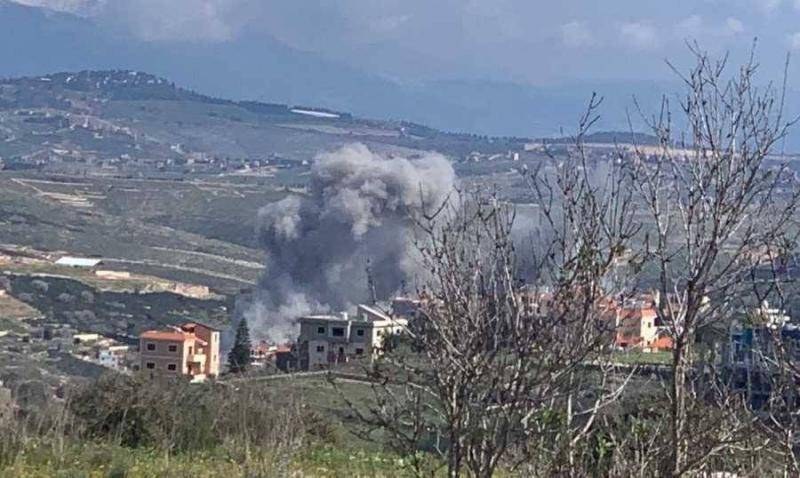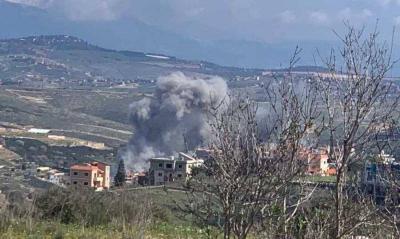It has become clear that Israel is expanding its airstrike operations to various regions of Lebanon, having initially targeted only border villages at the beginning of the conflict in Gaza. Today, there is fear of a war in Lebanon following the conclusion of the war in Gaza. Notably, the administration of U.S. President Joe Biden expressed today its concern about the growing opinions within the Israeli government that support a ground incursion into Lebanon by the end of spring.
Based on the field developments, several questions must be raised: Is there a ground operation in Lebanon, and has the possibility become apparent as stated by the American administration? Or is the likelihood of a ground war still unlikely, with the threats serving to pressure the conflicting parties to expedite finding solutions?
Former Deputy Prime Minister Major General Issam Abu Jamra noted in an interview with "Wardena" that what the American administration spoke of falls under the pressure to reach a solution, highlighting that Israel is currently targeting all Lebanese territory, and there is no escalation greater than deploying combat units, which is not expected at this time.
On the other hand, Brigadier General Nizar Abdul Qader stated in an interview with "Wardena" that the American apprehension regarding a ground incursion into Lebanon is not surprising given the increasing frequency of operations between Hezbollah and Israel. He pointed out that intentions cannot be read during wars, but the ongoing escalation in Israeli operations and the nature of the targets indicate that we will reach a war. While it is not possible to assign percentages to the outbreak of war, we concur with the American administration, which states that war is a clear possibility. Thus, what the American administration says is not only to pressure the conflicting parties to find solutions swiftly but is also based on indicators and facts. It is a realistic intellectual methodology.
While military operations are expected to expand to a comprehensive war that is now likely between the two parties due to miscalculation or perhaps deliberate mistakes, the delay until next spring stems from the notion that Israel will focus on confrontations in the north, anticipating significant clashes along the southern Lebanese border, especially if Iran supports Hezbollah. It is essential to note that Iran does not want to sacrifice the party today by involving it in a large-scale war, as Hezbollah is the best armed faction that it relies on, serving its interests in regional matters regarding the principle of unifying arenas.
He emphasized that there are significant fears after the conclusion of the war in Gaza that the Israeli leadership might exploit this military disengagement to launch a broad operation in Lebanon aimed at pushing Hezbollah away from the borders. The rocket bombardment conducted by the party may prompt Israel to engage in a swift ground battle not only to remove its fighters from the border but also to target the supportive environment that shelters the party.




